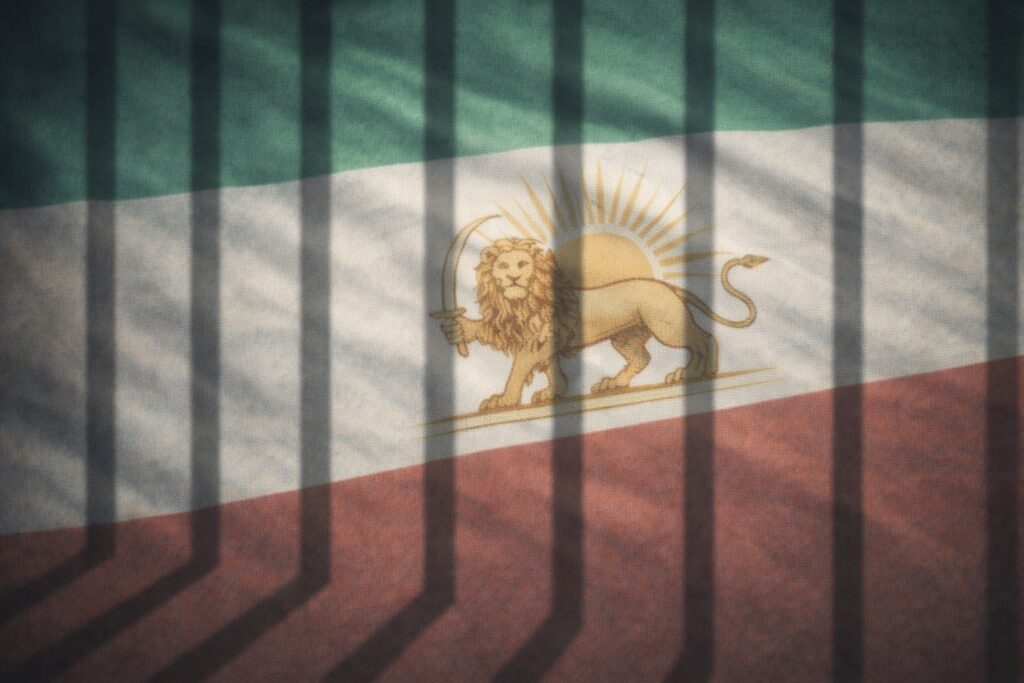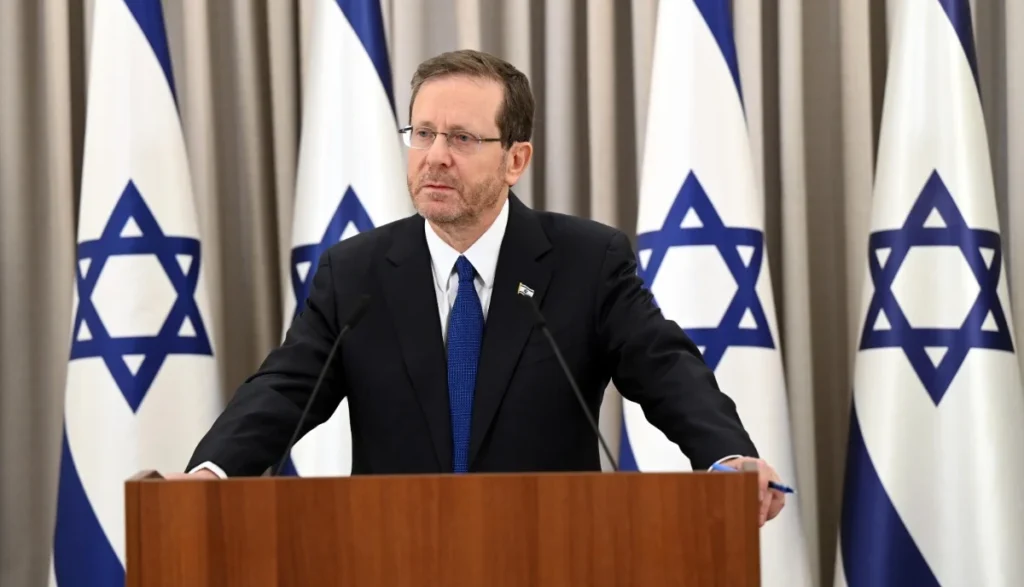UPDATES
Washington and Teheran
May 1, 2009 | AIJAC staff
Update from AIJAC
May 1, 2009
Number 05/09 #01
This Update adds more on Washington’s possible policy toward Iran, as th Obama Administration pursues engagement, at a time when both the US Congress and the Israeli government are attempting to maximise the leverage the US President will have.
Reporting on the likely efforts to ramp up pressure against Teheran even as Obama pursues engagement is Wall Street Journal reporter Gerald Sieb. He points out that the new Israeli government supports diplomatic engagement, but warns that time is short and Israel will also be making the case that progress needs to be made or it will have to consider other, meaning possibly military, options. Meanwhile, Congressional leaders, including many from President Obama’s own party, are pursuing efforts to ramp up unilateral sanctions against Iran, targeting especially Iran’s vulnerability over petroleum imports. For Seib’s description of the likely complexities of upcoming Iran policy in Washington over the coming few months, CLICK HERE. More on the US congressional sanctions proposal is here. Two Israeli columnists, neither fans of the current government, discuss the Netanyahu government and Iran – Yossi Melman urges him to eventually launch a military attack, while Aluf Benn appears to fear that he will.
Next up, the Washington Post editorialises about the manner of Washington’s engagement with Iran. It points to recent Iranian actions, including President Ahmadinejad’s speech at Durban, but especially the treatment Iranian-American writer Roxanne Saberi, recently given an eight year jail sentence for “espionage” after a one-hour trial, and warns that the Iranian President may be trying to turn engagement into a way to advance his own agenda and humiliate the US government. It warns against allowing him to do so, and urges that perhaps talks should wait until after the Iranian election in June. For the paper’s complete argument, CLICK HERE. Meanwhile, Canadian PM Stephen Harper calls for time limits to engagement with Iran to prevent Teheran from running down the clock.
Finally, Washington Institute terror financing expert Matthew Levitt (who is due to visit Australia as a guest of AIJAC later this month) looks at what policies America can adopt to help curtail Iranian exports of arms and technology to terrorist groups and problematic state actors. To illustrate the problem, Levitt uses the case of the Monchegorsk, a Russian-owned Iranian-chartered freighter recently caught trying to illegally import Iranian arms into Syria, which has had its cargo seized in Cyprus. He goes on to discuss the history and extent of Iranian efforts and offer some concrete suggestions in terms of counter-measures that can be pursued. For Levitt’s detailed discussion ot this problem, CLICK HERE.
Readers may also be interested in:
- Barry Rubin dissects claims that Ahmadinejad said he’d support a two state solution if the Palestinians do. Michael Rubin looks at the history of past efforts to “engage” Iran.
- In our stranger that fiction department, Ahmadinejad was reportedly found to have been giving out Israeli Jaffa oranges at campaign rallies. He is also alleged to have stolen Barak Obama’s campaign slogan.
- A video at the Durban II conference in Geneva, in which a member of the official Iranian party called Nobel Laureate Eli Wiesel a “Zio-Nazi.” A report on this incident here.
- US Defence Secretary Robert Gates warns against military action on Iran, and pushes sanctions as the way forward.
Events Merge to Point the Way on Iran
By GERALD F. SEIB
Wall Street Journal, APRIL 21, 2009
Can the U.S. talk to Iran and ratchet up economic pressure on it at the same time?
We’re about to find out. President Barack Obama, as everyone knows, wants to do the talking, in hopes of finding a way to derail Iran’s nuclear program. But even as he moves in that direction, the combined efforts of new Israeli Prime Minister Benjamin Netanyahu and a bipartisan selection of lawmakers in Congress will try to perform the economic squeeze.
The great question, of course, is whether these two impulses are mutually reinforcing or at odds with each other. Would more economic pressure give Iran an incentive to be more forthcoming, or simply provide an excuse to abandon the diplomatic track?
Three separate events are coming quickly that, taken together, may provide the answer.
The first is the consolidation of power in Israel by Mr. Netanyahu, the famously blunt, congenitally hard-nosed new prime minister. He has formed his new government in Israel, and warned as he did that Iran’s nuclear program represents a “hinge of history,” and the effort to stop it a test of “Western civilization.”
His attitude can’t have been brightened by Iranian President Mahmoud Ahmadinejad’s performance at a United Nations conference on racism Monday, when the Iranian leader gave a speech labeling Israel a “cruel and racist regime.” (Please see related article). Mr. Netanyahu leaves barely beneath the surface the threat to use Israeli air power to strike at the nuclear program that Mr. Ahmadinejad oversees.
Look for Mr. Netanyahu to visit Washington by the end of May to inaugurate his relationship with Mr. Obama. Mr. Netanyahu says he doesn’t oppose the president’s effort to start a dialogue with Iran, but warns that time is short and the odds of success low.
In many ways, Mr. Netanyahu has set himself up nicely for his coming visit to Washington. When he arrives, he’s likely to find that Israel’s veiled threats to use the military option against Iran have left many on the American side nervous and urging him to hold off. To which he will respond, in effect: OK, if you don’t want me to use the military option, find some other way to squeeze Iran hard enough to make it change course.
That’s where those members of Congress enter the picture. As early as this week, some key senators — led by Democrat Evan Bayh of Indiana, Republican Jon Kyl of Arizona and independent Joseph Lieberman of Connecticut — will introduce a bill designed to hit Iran in what is widely regarded as its soft economic underbelly: its reliance on imported gasoline and other refined products.
The great economic anomaly of Iran is that it is a country wealthy in oil but woefully unable to provide enough refined-oil products to run its country’s cars and trucks. It simply has never built enough refining capacity to do that. By some estimates Iran imports as much as 40% of the gasoline it uses, and two years ago imposed rationing because it couldn’t keep up with escalating demand. In fact, Iran has been stocking up on gasoline in recent weeks in hopes of meeting summer demand at home.
Other economic sanctions have struck at Iran’s financial sector, but the goal of the bill that Sens. Bayh, Kyl and Lieberman are about to introduce is to penalize international energy companies that sell refined products to Iran. The bill will authorize economic sanctions against these firms, as well as companies that insure the tankers that deliver refined products and those that finance shipments. The penalty: a ban on doing business with the U.S. government. The hope is to make such business too costly for companies such as India’s Reliance Industries and European oil trading firms to keep it up.
In an interview, Sen. Bayh explains the strategy this way: “We’re trying to strengthen the president’s hand in the efforts to avoid a nuclear-armed Iran. If events keep unfolding in the direction they’re going, in the next several years we will face a choice of either trying to contain a nuclear-armed Iran or using military force to stop it. Neither is a good option.” Iran, he adds, has “a real Achilles’ heel” in its reliance on imported gasoline. If an embargo on gasoline imports “was even 50% effective, that could perhaps get them to sit up and take notice.”
The problem with such strategies is that Iran is hardly without economic leverage of its own. It can disrupt international oil markets, of course, or halt the flow of badly needed electricity it provides to the American-sponsored government next door in Iraq. And Iran has endured shortages of refined products before — with discomfort, to be sure, but endured them.
The ultimate target of this pressure will be the new Iranian government that emerges from elections to be held in June. It’s a reasonably good bet that those elections — which pit Mr. Ahmadinejad against less-doctrinaire foes — won’t change much.
But at least they will clarify which kind of Iranian government the Obama administration will approach for a dialogue. By the end of June, all the pieces will be on the board, and the chess game will begin in earnest.
Back to Top
————————————————————————
Invitation to Appease
Will the Obama administration talk to Iran while it persecutes Americans and libels Israel?
Washington Post, Wednesday, April 22, 2009
LAST WEEK, the Iranian regime brought American journalist Roxana Saberi before a closed court and in a one-hour trial convicted her of espionage — a blatantly bogus charge. She was sentenced to eight years in prison. On Monday, Iranian President Mahmoud Ahmadinejad, who was last seen inaugurating a new facility for Iran’s nuclear program, appeared at the U.N. conference on racism in Geneva to deliver a speech seemingly calculated to cause maximum outrage in the United States and other Western countries. They had, he said, “resorted to military aggression” in order to create Israel “on the pretext of Jewish sufferings and the ambiguous and dubious question of the Holocaust.”
Thus has Iran answered President Obama’s offer of dialogue and the decision by his administration to join talks on Tehran’s nuclear program. To the consternation of some European officials, Washington has insisted on dropping a long-standing demand that Iran obey U.N. resolutions ordering it to suspend uranium enrichment before negotiations begin. Iran could have responded to this concession by releasing Ms. Saberi, who holds U.S. and Iranian citizenship, and ex-FBI agent Robert Levinson, as the administration asked it to do in a State Department letter last month. Instead the charges against Ms. Saberi were ramped up, from practicing journalism without a credential and buying wine, to espionage; the regime does not even admit that it is holding Mr. Levinson.
Then came Mr. Ahmadinejad’s speech, which repeated the numerous anti-Israel and anti-Semitic libels that have made the Iranian president a pariah in the West. Western delegates walked out on the address, which the State Department rightly called “vile and hateful.” Yet Mr. Ahmadinejad had accomplished his aim: advancing Iran’s claim to represent radical Arab and Islamic opinion, along with his own campaign for reelection in June.
Iran watchers point out that Mr. Ahmadinejad has sent other messages recently. He said he would welcome direct talks with Washington, and over the weekend he dispatched a letter to Ms. Saberi’s prosecutor urging that she be allowed to defend herself. These are not necessarily contradictions. What Iran is doing is inviting Mr. Obama to humiliate his new administration by launching talks with the regime even while it is conspicuously expanding its nuclear program, campaigning to delegitimize and destroy Israel and imprisoning innocent Americans. Mr. Ahmadinejad’s unlikely concern for Ms. Saberi’s defense, along with other regime statements suggesting her sentence could be reduced, sound like an offer to make her a bargaining chip — to be exchanged, perhaps, for members of the Revolutionary Guard Corps who are in U.S. custody in Iraq.
Mr. Obama has always said that talks with Iran must be conducted under the right circumstances and in a way that advances U.S. interests. The administration won’t meet that test if it allows negotiations to become a means of vindicating Mr. Ahmadinejad’s radical agenda. It should postpone any contact until after the Iranian election in June — and it should look for clear signs that Iran is acting in good faith before talks begin. The unconditional release of Ms. Saberi and Mr. Levinson would be one.
Back to Top
————————————————————————
Disrupting Tehran’s Export of Technology and Weapons
Matthew Levitt
PolicyWatch #1512
April 30, 2009
Earlier this year, Cyprus impounded the Iranian-chartered freighter Monchegorsk, a vessel laden with war materiel bound for Syria (and perhaps beyond). This episode highlights the shortcomings of current UN and European Union sanctions on Iran, and underscores the need for a more systematic approach for dealing with Tehran’s efforts to transfer technology and arms to radical allies in the Middle East and elsewhere, even as Washington seeks to engage Iran.
The Monchegorsk and its Cargo
In January, the U.S. Navy stopped Monchegorsk while it was transiting the Red Sea en route to Syria, on the basis of intelligence that the freighter was carrying Iranian arms exports in violation of UN Security Council Resolution 1747. According to UN documents, the Monchegorsk, a Russian-owned, Cypriot-flagged vessel, was chartered by Islamic Republic of Iran Shipping Lines (IRISL). In September 2008, the Treasury Department designated IRISL for its proliferation activities, stating that “Not only does IRISL facilitate the transport of cargo for UN designated proliferators, it also falsifies documents and uses deceptive schemes to shroud its involvement in illicit commerce.”
A U.S. Navy boarding party confirmed the arms embargo suspicions and ordered the ship to Cyprus. There, according to the Wall Street Journal, the Cypriot authorities found components for mortars and thousands of cases of powder, propellant, and shell casings for 125mm and 130mm guns. The cargo was then unloaded and impounded by Cypriot authorities.
U.S. and Cypriot authorities acted upon the legal guidelines set forth by a series of EU and UN resolutions pertaining to Iran. In February and April 2007, the EU imposed a number of sanctions on Iran in order to implement UN Security Council decisions, including a ban on Iranian transfers of military materiel, arms, and missile technology. Similarly, Resolution 1747, adopted in March 2007, prohibited the transfer of “any arms or related materiel” by Iran, and urged UN member states not to facilitate such efforts. In addition, Resolution 1803, passed in March 2008, calls upon all states, “in accordance with their national legal authorities and legislation and consistent with international law,” to inspect IRISL cargoes to and from Iran transiting their airports and seaports,” provided there are reasonable grounds to believe that the aircraft or vessel is transporting [prohibited] goods.”
Not a New Problem
Problems relating to interdicting destabilizing technology and arms transfers on the high seas, or those proscribed by UN resolutions, are not new. In October 1991, the North Korean freighter Mupo, carrying Scud missiles and related equipment to Syria, returned to North Korea after Egypt denied it transit through the Suez Canal amid concerns that Israel might try to interdict the shipment. The cargo was subsequently delivered to Iran in March 1992 by North Korean freighters Dae Hung Ho and Dae Hung Dan, which were shadowed by U.S. Navy vessels during the transit. (The navy was unable to stop the transfers because they were not illegal under international law.) The shipments are believed to have subsequently been flown to Syria.
In August 1993, the Chinese freighter Yinhe, which was believed to be carrying chemical warfare agent precursors bound for Iran, was forced to dock in Saudi Arabia, but was found not to be carrying any banned items. And in December 2002, a North Korean freighter carrying Scud missiles believed to be for Iraq was stopped and inspected by Spanish warships, but was set free when it turned out that the Scuds were intended for Yemen.
These episodes demonstrate the need to ensure that efforts to interdict destabilizing or proscribed shipments are backed up by reliable intelligence and appropriate legal authorities, and highlight the risks of acting without one or the other.
Iran Arming U.S. Foes
A number of similar incidents in recent years have involved Iranian efforts to transport military materiel and arms by sea, land, and air to allies and surrogates. During the second Palestinian intifada, Iran helped facilitate arms shipments to Gaza through Hizballah and the Popular Front for the Liberation of Palestine to Gaza (by means of floating waterproof containers) by using two civilian vessels, the Santorini, seized by Israel in May 2001, and the Calypso 2. In December 2001, Iran attempted to deliver fifty tons of weapons to the Palestinian Authority aboard the Karine A, whose shipment was seized by the Israeli Navy in the Red Sea.
During the 2006 Hizballah-Israel war, Israeli intelligence claimed that Iran was resupplying the Shiite movement via Turkey. Such claims gained credibility in May 2007, when a train derailed by PKK terrorists in southeastern Turkey was found to be carrying undeclared Iranian rockets and small arms destined for Syria — probably for transshipment to Hizballah.
More recently, Iran has emerged as a major arms supplier for Hamas in Gaza, as well as for anti-American governments in South America. In January and February 2009, the Israeli Air Force bombed two vehicle convoys reportedly carrying Iranian arms destined for Hamas fighters in Gaza. (There are also reports that the Israeli Navy sunk an Iranian ship carrying arms for Hamas off the coast of Sudan at this time.) Also in January 2009, Turkish customs officials in the port of Mersin discovered a shipment with equipment capable of producing explosives. The shipment, which originated in Iran, had entered Turkey by truck and was destined for Venezuela.
These recent episodes underscore Iran’s growing emergence as a supplier of military materiel, equipment, and arms for radical Islamist and anti-American allies and surrogates in the Middle East and beyond. For that reason, it is increasingly important to establish a comprehensive regime to constrain Iran’s ability to transfer military materiel and arms to its allies and surrogates by sea, land, and air, especially if Iran were to market its nuclear technology abroad.
Enhancing Leverage over Tehran
These past incidents indicate that intelligence must be timely and reliable to avoid embarrassing incidents that undermine U.S. credibility. They also highlight the gaps in the available policy tools to deal with Iranian arms transfers to its allies and surrogates. To close these gaps, the United States should work with its allies and the international community to:
• encourage the UN sanctions committee to issue a Security Council communique to the UN General Assembly, emphasizing the obligation of all member states, including Iran and Syria, to fully abide by the UN ban on arms transfers;
• work with the EU to expand its current policy banning the sale or transfer to Iran of “all arms and related material, as well as the provision of related assistance, investment and services” to include a ban on the purchase or transfer from Iran of the same;
• work with UN and EU member states to adopt legislation pertaining to Iranian arms and technology transfers, to enable them to fulfill their UN and EU obligations. Encourage regional organizations in South America and South and East Asia to adopt similar resolutions;
• work with the EU and Turkey (the de facto eastern gateway to Europe) to develop an enhanced customs and border security regime to prevent Iranian arms and technology transfers through Turkey;
• engage the private sector to draw attention to the risk of doing business with IRISL, its subsidiaries, and other banned entities. As the U.S. Treasury noted when it designated IRISL: “Countries and firms, including customers, business partners, and maritime insurers doing business with IRISL, may be unwittingly helping the shipping line facilitate Iran’s proliferation activities.” Indeed, given Iran’s history of deceptive financial and trade activity, extra scrutiny should be given to any ship that has recently paid a call to an Iranian port;
• encourage countries to require ports and/or authorities to collect detailed, accurate, and complete data regarding all cargo being shipped to or through their countries (especially from risk-prone jurisdictions like Iran), to conduct rigorous risk assessments, and to proceed with actual inspections as necessary;
• encourage implementation of the World Customs Organization’s (WCO) draft Framework of Standards to Secure and Facilitate Global Trade. The WCO represents 174 Customs administrations across the globe (including Iran) that collectively process approximately 98 percent of world trade. Under the proposed framework, a risk management approach would be implemented for all cargo to identify high-risk shipments at the earliest possible time. Participating members would benefit from enhanced security and efficiency, and could benefit from lower insurance premiums.
Policy Implications
Recent events show that even as the Obama administration seeks to engage Tehran, the Islamic Republic has continued to work to undermine U.S. interests and to support anti-American elements around the world, as demonstrated by its ongoing efforts to resupply Hamas, support Hizballah’s efforts to destabilize Egypt, and assist Iraqi insurgents. For this reason, the United States needs to better constrain Tehran’s ability to arm allies and surrogates hostile to U.S. interests. Doing so would enhance Washington’s leverage in possible negotiations with Tehran, contain Iran should such diplomatic efforts fail, and prevent Iran from contributing to the proliferation of nuclear weapons in the Middle East and beyond.
Matthew Levitt is a senior fellow and director of The Washington Institute’s Stein Program on Counterterrorism and Intelligence.
Tags: Iran





